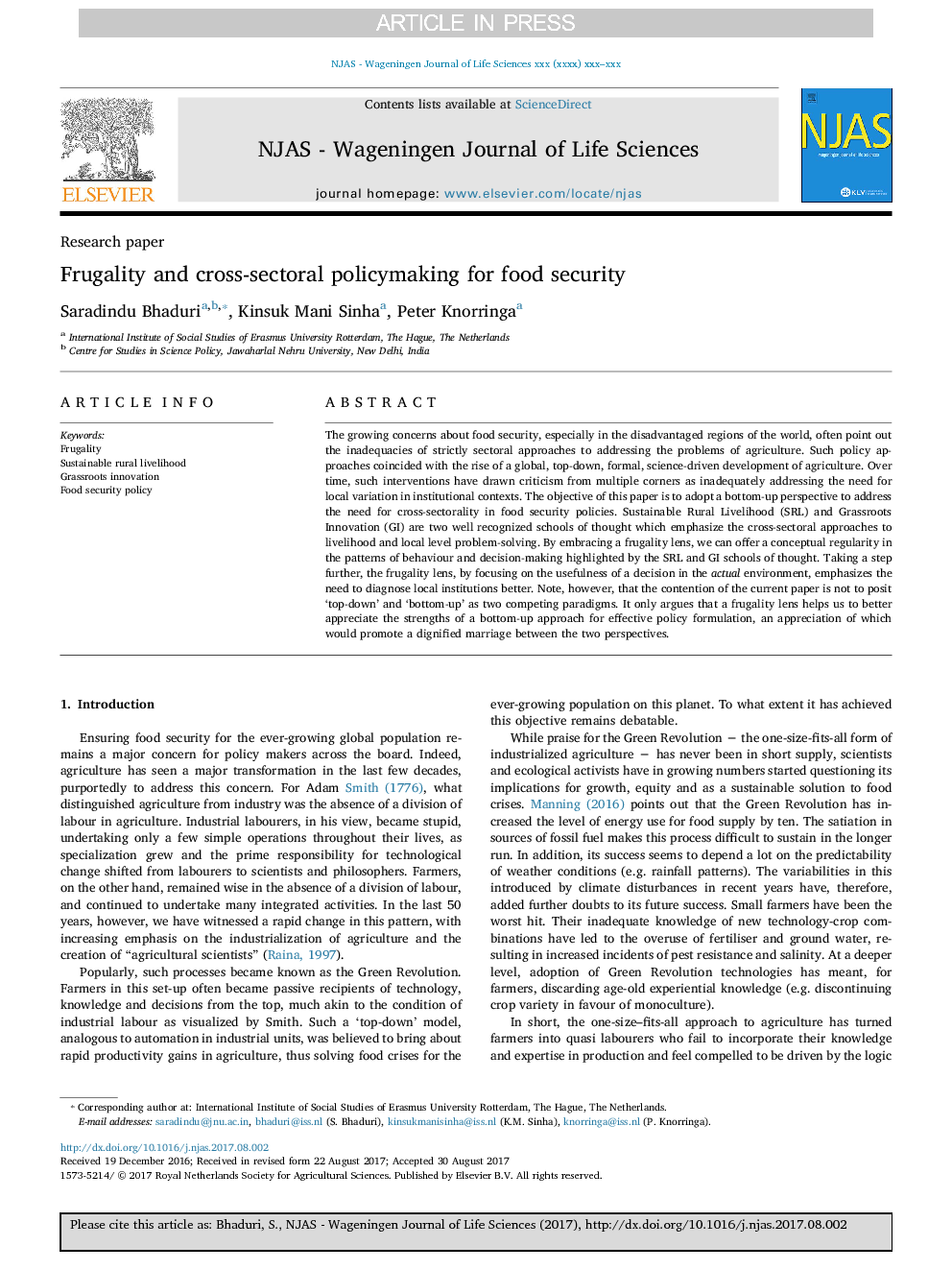ترجمه فارسی عنوان مقاله
بی نظمی و سیاست های متقابل بخش های مختلف برای امنیت غذایی
عنوان انگلیسی
Frugality and cross-sectoral policymaking for food security
| کد مقاله | سال انتشار | تعداد صفحات مقاله انگلیسی |
|---|---|---|
| 138105 | 2018 | 8 صفحه PDF |
منبع

Publisher : Elsevier - Science Direct (الزویر - ساینس دایرکت)
Journal : NJAS - Wageningen Journal of Life Sciences, Volume 84, March 2018, Pages 72-79
ترجمه کلمات کلیدی
فراری بودن، معیشت روستایی پایدار، نوآوری مردمی سیاست امنیتی مواد غذایی،
کلمات کلیدی انگلیسی
Frugality; Sustainable rural livelihood; Grassroots innovation; Food security policy;

